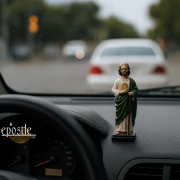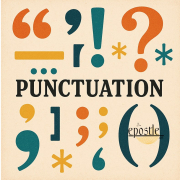Simplifying the Complex
Armodoxy for Today: Simplifying
This coming weekend the Armenian Church celebrates the “Holy Translators” (Srbots Tarkmanchats), a group of people who translated the Faith. Do not make the mistake of thinking they translated from one language to another, such as Greek to Armenian. Their mission was much greater. These people were not even contemporaries of one another, that is, they lived in different time periods, separated over a span of 700 years or so, yet they are known as a group: The Holy Translators.
Communications – communicating with one another – is regarded as one of the characteristics of a modern society. Ironically, as we move forward in history, we are communicating less and less. Understanding (or misunderstanding) one another seems to be the greatest challenge of our day. Our ability (or inability) to communicate determines the state and quality of life (and death).
In the Bible, the Tower of Babel story is remembered often when discussing misunderstanding among peoples. Unfortunately, as with many stories from the Old Testament, there is a tendency by some to believe these stories as factual accounts of history, rather than metaphorical means by which to explain reality. Read literally, the Tower of Babel, tells of man’s desire to reach God and so he builds a tower to reach God. To confound his efforts, God scrambles man’s languages. Actually, the story is a simple explanation as to why there are so many different languages in the world. Remember, these stories explained the reality of a world with multiple languages long before anthropology dissected migratory habits of people across continents. The story was ample to give satisfaction to the inquisitive mind of the time.
Furthermore, the Tower of Babel story taken literally doesn’t make sense from a Christian perspective. Jesus came so that we can know God, so that we can be closer to God. Why would God confound this effort with a “curse” of multiple languages? Ask this question and you will be brushing against one of the fundamental differences between the Old and New Testament, and the approach to Bible reading. Very sadly and tragically, there are thousands of people, forming many denominations, that build their so called “theology” on these cruel readings of the Bible, claiming the sorry state of our world is part of God’s plan! Listen carefully: We are all children of the same God.
The Church has called out the Holy Translators by name, beginning with St. Mesrop Mashdots, the creator of the Armenian alphabet, who created this miracle of human imagination for the sole purpose of translating the Holy Scriptures to Armenian. The last personality in the group is St. Nersess Shnorhali, who was a theologian, priest, ecumenist and ascended to the position of Catholicos, that is, chief bishop of the Armenian Church. After his passing, he was canonized as a Saint who continues to guide and inspires us with his writings, prayers and hymns. Between Saints Mesrop and Nersess are others, such as David the Invincible, (Anhaghd) who could debate with the best of the philosophers. He was given the descriptor, “invincible” by the Greeks.
Each member of the group of translators is united to the others because of their vocation. Translating is taking what is complicated and making it easy to understand and grasp. That’s what unites the Holy Translators. By bringing understanding to ideas, they made the Faith accessible by people.
Jesus brought accessibility of God to everyone. It didn’t matter who you were on the social scale, how much money you had or made, what family you were born into, what color your skin was, what your nationality was, what your ethnic make-up was, if you spoke or didn’t, if you walked or didn’t, if you saw or didn’t, God was accessible to you. The Holy Translators continued that tradition, making the complicated easy to understand and accessible.
But the translators are not merely figures in history, they come today with a message of hope for a hurting world. That’s what we’ll explore tomorrow as we get closer to the Feast of the Holy Translators this coming Saturday. Join me tomorrow for Armodoxy for Today.
Let us pray, a prayer from the Armenian Church’s Jamakirk, the Book of Hours: Receive, O Great and Almighty God, these prayers. Make Your light of righteousness and wisdom shine forth upon us and make us sons of light and of day, so that in godliness we may lead our life and fulfil it without offence, for You are our helper and Savior and to You is fitting glory and honor. Amen.

 2023 Fr. Vazken
2023 Fr. Vazken 2025 Epostle
2025 Epostle 2024 Fr. Vazken
2024 Fr. Vazken 2026 Epostle
2026 Epostle


 2012 Fr. Vazken
2012 Fr. Vazken
Leave a Reply
Want to join the discussion?Feel free to contribute!